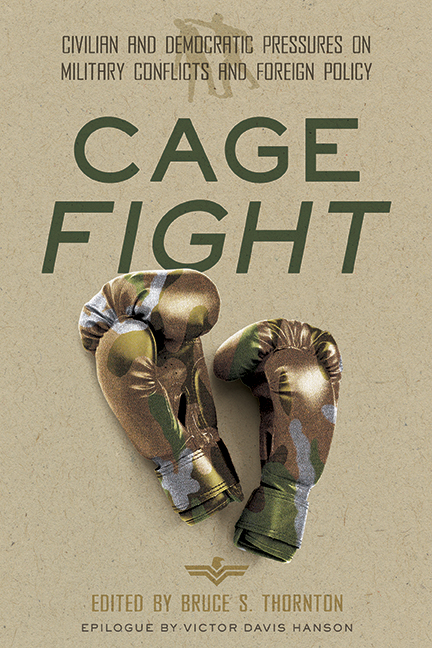Publication Date: February 2023
Since the birth of democracy, the political institutions that protect the freedom and rights of citizens—regular elections, the right to speak freely and express dissent—have been potentially dangerous in times of war and conflict by complicating and interfering with the policies and decisions that require swift execution, decisiveness, and persistence. In the United States, the military establishment is subordinate to civilian institutions and offices that are accountable to the citizens, leading to often contentious relations.
The five essays in this book examine these complex civilian–military relations. Paul Rahe describes a famous example of the excesses of direct democracy in ancient Athens; Ralph Peters analyzes the Civil War from the perspective of dissent, resistance, and riot; Peter Mansoor provides a history of military disagreement with the commander in chief in peacetime; Williamson Murray covers the concerns of American isolationism during the Cold War and the Korean War; and Bing West offers a study of dissent within the military around failing strategies. In his epilogue, Victor Davis Hanson outlines President Trump’s stormy relationships with his military cabinet members, illustrating many of the tensions and dangers that have characterized the principle of civilian control of the military.
About the Author:
Bruce S. Thornton is Emeritus Professor of Classics and Humanities at California State University–Fresno and a research fellow at the Hoover Institution.
Contributors: Peter R. Mansoor, Williamson Murray, Ralph Peters, Paul A. Rahe, Bing West

















